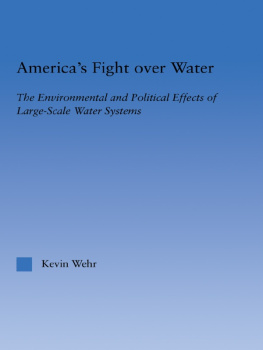Ross Garnaut et al., The Implications of Rapid Development for Emissions and Climate-change Mitigation, in Helm and Hepburn, eds., op. cit.
Nicholas Stern, The Economics of Climate Change; Helm and Hepburn, eds., op. cit.; Henry D. Jacoby et al., Sharing the Burden of GHG Reductions, MIT Joint Program on the Science and Policy of Climate Change, report no. 167, 2008.
Amartya Sen, The Idea of Justice, London, 2009.
APPENDIX I
Global Justice
The average emission of carbon dioxide into the atmosphere is around five tonnes per capita per annum. For Americans it is twenty tonnes, for sub-Saharan Africans one tonne or less. Moreover, the Western world generally, and the industrial parts of it in particular, have a head start over all the others, since Western countries have been emitting greenhouse gases for two centuries. In justice, therefore, not only should Western countries reduce their emissions substantially now, they should also compensate less developed countries for having taken advantage of an opportunity that their conduct has destroyed the opportunity to pour out greenhouse gases into the atmosphere without counting the cost. In this, as in so many other things, the West has taken more than its share of the commons.
What should we make of it? First, terms like country, Western countries and developing countries are vague. Questions of justice do not arise between geographical entities but between agents, with rights that they may claim and duties that they must fulfil. Justice and injustice are qualities of acts, and of the agents who perform them. And while there can be collective agents that inflict and suffer injustice, countries are not among them. Only a collective that can identify itself in the first-person plural can act and be accountable. Talk of global justice, therefore, presupposes the we of collective action the very we that has been the subject of this book. No government can conceivably respond to demands of global justice if it does not regard itself as representative of a nation, liable for the bad, and taking credit for the good that we, as a nation, have done.
Hence the demand for global justice requires us to acknowledge the nation state as the primary vehicle of political responsibility. Moreover, demands for justice are founded not on states of affairs but on the liabilities that they crystallize. Proof of liability requires us to determine how present generations inherit the faults of their predecessors, when bound to those predecessors in the first-person plural of a nation state. Vague terms like country may be used to make emotionally satisfying accusations of collective guilt, but the accusations can be turned into definite demands only if we settle questions of agency, personality and transgenerational accountability.
The problem here is partly philosophical, partly political. Contractarian theories of justice, such as that famously developed by John Rawls, assign benefits and costs to the members of a society, which is the subject matter of the contract. They are not global theories, since those outside the contract are not considered. Hence such theories do not yield a clear answer, either to questions of intergenerational justice, or to questions of the just distribution across the world of the benefits and costs of economic growth. In an effort to rectify this deficiency Amartya Sen has proposed an idea of justice as impartiality, in the spirit of Adam Smiths discussion of the impartial spectator. I do justice to others when I look on them with impartial concern, according to them the same consideration as I would expect to be accorded in turn. I must discount differences of nationality, and the web of contractual and historical contingencies that bind the other but dont bind me. It is this attitude which, Sen insists, is directed towards raising questions rather than giving formulaic answers that should be adopted when considering global justice.
The power of Adam Smiths heuristic device is undeniable. Impartiality and justice sit together in the human mind, and form . Impartiality tells me not to discount the situation of the impoverished Indian just because he lives in India, or of the Sudanese mother just because her struggle to survive occurs in distant Sudan. However, it also tells me not to discount their local attachments just because they are exclusive, or to pay no respect to their tribal, national and religious loyalties just because they are at odds with mine. Although Sen wishes to advance from impartiality to a kind of Enlightenment universalism, maybe even to a consistently global view of political decision-making, this step does not follow. An impartial view of the human condition must surely recognize that, while oikophilia is a human universal, its manifestation is essentially particular, local, national and territorial. And it is in this way that transgenerational loyalty must be understood. I can do justice to my antecedents by respecting their endowments and carrying out their wills. I can do justice to my descendants by good stewardship of the assets that I hold in trust for them. And we can do justice to ancestors and descendants as a group. But no human being is able to globalize this natural sentiment, and the attempt to do so will always spill over into those exultant acts of repudiation after which no obligations survive.
Undeniably the British have benefited from the prosperity brought to them by 200 years of greenhouse gas emissions, and in this may have narrowed the options now available to the people of Africa. Morally speaking we have inherited a benefit that we should do our best to pay for. But what are the political consequences? Should the British people, or the United Kingdom as their representative, be held strictly liable for the damage that this has inflicted on sub-Saharan Africa, as Mr Rylands was held strictly liable for the flooding of Mr Fletchers mines? Just where would such reasoning end? How can we conceivably count the cost to Africa? And what about the benefits? The energy consumed by the British enabled them to spread the rule of law and a plethora of technical accomplishments all over Africa. Should that benefit be entered into the final account? Or should it be discounted, because it has been squandered by the kleptocrats who subsequently acquired it? Maybe the twenty tonnes per capita enjoyed by Americans today are part of the cost of the pax Americana, without which the world would (in Johns view, but not in Marys) be far more dangerous than it is.
Clearly we dont know where the argument is going. Rather than indulge in speculations that have no end and upon which no politician could conceivably act, we should look for a clear principle that will enable self-defining nations to assess their liabilities and compensate the victims, without undermining their freedom to act. The massive transfers of resources from the West to the rest that are often advocated by the radical Greens would destroy the capacity of the Western powers to take the measures that we all need, and which the Western powers alone can encompass. Such self-destructive behaviour would be of no benefit to anyone, and is surely not what global justice requires.
Global justice can only mean allocating sacrifices fairly among all the agents who must make them. A fair allocation is not an equal one. It is an allocation that acknowledges the unequal responsibility for the damage, and the unequal power to repair it. Those to be assessed include nation states like Britain, France and the United States. But they also include corporations, both national and multinational, as well as entities like Gazprom, which are corporate masks worn by political forces and partly criminal elites. Fairness requires that the bigger polluters should commit more of the resources needed. These resources should be devoted to subsidizing research into clean energy, and subsidizing the transfer of this energy to the developing countries. That in turn means providing clean energy to the people in developing parts of the world, whether or not they have the benefit of a government that can say we on their behalf. This forward-looking approach to the compensation problem presupposes the concepts that I have been defending in this book: national identity, transgenerational responsibility and a preference for decentralized initiatives over radical goals. How easy it will be to take such a forward-looking approach is a moot point. But the alternative Western breast-beating, followed by yet more transfers to the kleptocrats of Africa will leave the earth in the same parlous condition as it is today.
Next page




![Blackstone Audio Inc. - Ordeal by hunger: [the story of the Donner Party]](/uploads/posts/book/167807/thumbs/blackstone-audio-inc-ordeal-by-hunger-the.jpg)
![Blackstone Audio Inc. - The politically incorrect guide to the presidents: [from Wilson to Obama]](/uploads/posts/book/167736/thumbs/blackstone-audio-inc-the-politically-incorrect.jpg)







